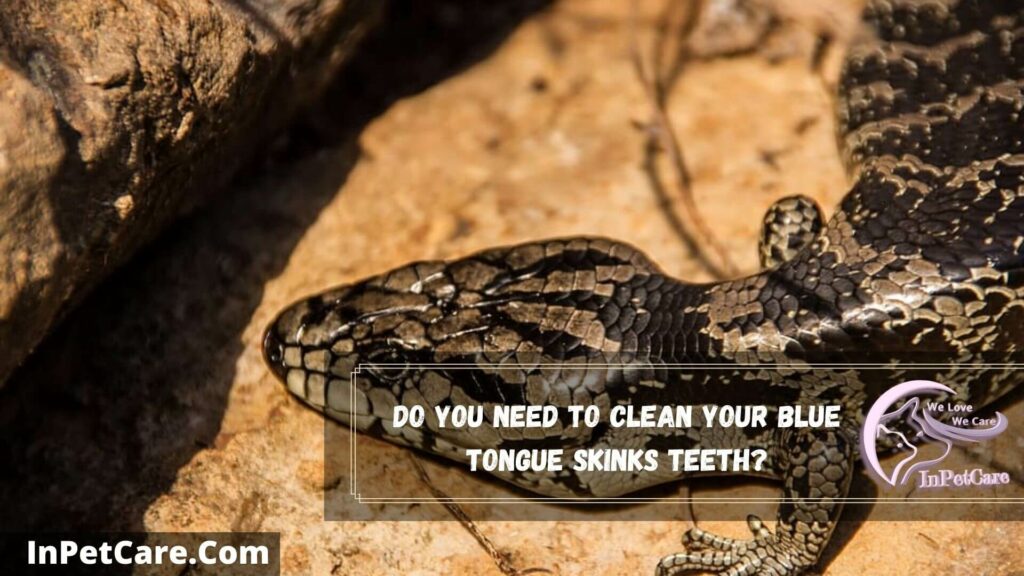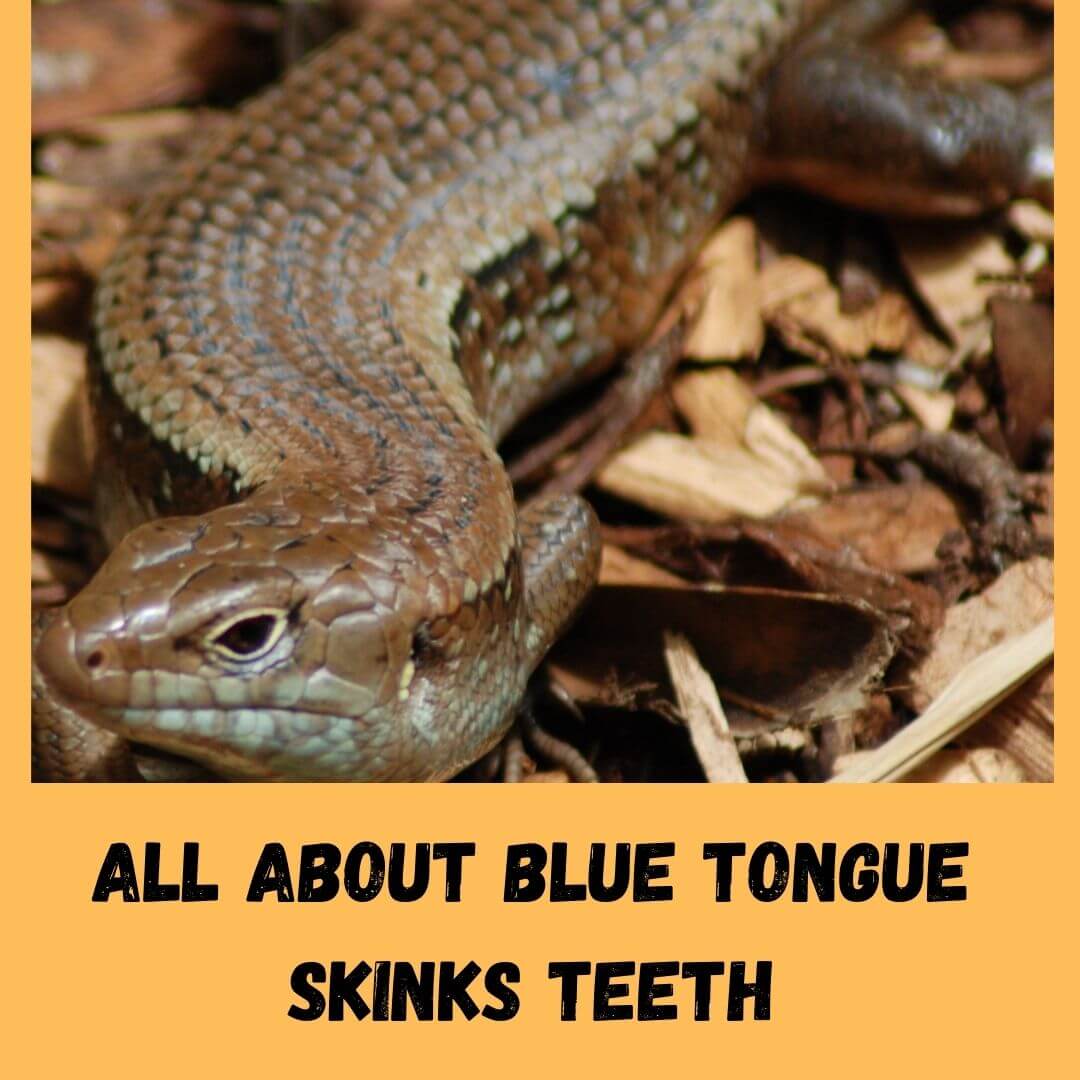Being an omnivorous reptile, we already know that a blue tongue skink can chop down insects, throw down fruits, and gobble up vegetables quickly. Such activity can raise a fascinating question: how do they do it? Do blue tongue skinks have teeth to help break down all that food along with crazy stuff that they eat.
I will answer these fascinating questions: does a blue tongue skink have teeth? We will also know all about its teeth uses, sharpness, preventions, and care to provide.
It is essential to pay close attention to your blue tongue skink mouth because mouth rot can result in a deadly health issue. Bluetongue skink is giant lizards that are grouped into the desert lizard category and are native to Australia.
It has many species, but here, we are talking about the common blue tongue skink teeth. Let’s first know do blue tongue skinks have teeth?
As blue tongue skinks become increasingly popular in the United States as pets, more and more reptile enthusiasts and potential owners want to know as much as they can about these fascinating lizards.
Post Contents
- Do Blue Tongue Skinks Have Teeth?
- Do Baby Blue Tongue Skinks Have Teeth?
- What Do Blue Tongue Skinks Use Their Teeth For?
- Are Blue Tongue Skinks Teeth Sharp?
- What Can Affect The Health Of Blue Tongue Skinks Teeth?
- Should You Check Your Blue Tongue Skinks Teeth?
- Do You Need To Clean Your Blue Tongue Skinks Teeth?
- Can Blue Tongue Skinks Bite Humans?
- Final Thoughts
Do Blue Tongue Skinks Have Teeth?
Yes, blue tongue skin tends to have an underdeveloped teeth system that helps them chew down insects, gobble up fruits and throw down vegetables conveniently.
Their teeth are different from humans and other reptiles, allowing them only to drink and swallow at the first few months of their Juvenile growth stage. In contrast, a blue tongue skink and other lizards do need teeth to chew down vegetation, plant matter, and insects from day one.
In reality, from what I have observed, blue tongue skinks do have teeth, but they never chew on food using those teeth. Most times, I have watched skinks swallowing everything they eat. Bluetongue skinks usually tear off pieces and destroy whatever they deem possible.
Do Baby Blue Tongue Skinks Have Teeth?
Yes, baby blue tongue skink has an underdeveloped teeth system, but the absence of alveoli lacks strength at the first few months of their life. The arrangement of the teeth and their sharpness doesn’t occur in the beginning. Blue Tongue Skinks and its species lack tooth sockets that keep all the strong teeth in place.
What Do Blue Tongue Skinks Use Their Teeth For?

There is no primary use of blue tongue skink teeth. Skink teeth tend to be very short and round, which is used to grip insects.
Bluetongue skink uses its teeth to hold and better grip plantations and insects if needed. Sometimes, a blue tongue skink also uses its teeth for grinding food to the required consistency before swallowing.
Some lizards’ frontal teeth tend to fall out and regrow, but in blue tongue skink, it’s an instant cause for concern. Bluetongue skink teeth usually fall out when they are facing health issues. On the backside of their mouth, the teeth tend to be underdeveloped compared to the frontal teeth.
Are Blue Tongue Skinks Teeth Sharp?
At a young age, blue tongue skink teeth will be sharp, but with age, as they get older, their teeth will lose 95% of the sharpness they once had. Bluetongue skink gets older, and their teeth’ constant use gradually wears down its sharpness and grounds off the edges.
However, it also depends upon the type of diet you feed to your blue tongue skink. If you have been providing your skinks with a diet that doesn’t need to be crushed or chewed or torn down into pieces, they have likely rounded edges without sharpness in their teeth at all.
All in all, lizards like blue tongue skinks don’t have sharp teeth once they are adults.
What Can Affect The Health Of Blue Tongue Skinks Teeth?
Here, we are going to talk about what can affect the health of blue tongue skinks teeth. I am going to list five major factors that can affect the health of blue tongue skink teeth. Fortunately, all the factors are in the control of the owner. Let’s learn all these five factors that can affect the health of skink’s teeth so you can always be ready to be on top of your blue tongue skink oral health.
- Diet
Diet plays a significant role in your blue tongue skink oral health. It is something that you should pay close attention to. Bluetongue skink teeth can be affected by plaque.
If the plaque collects on your blue tongue skink’s teeth and you don’t take precautions, it can harden into tartar over time. A very great option to feed your blue tongue skink is crunchy vegetables and crunchy insects.
- Lighting
Keeping the lighting correct is another factor that will help you ensure your blue tongue skinks gum and teeth stay healthy. Without proper basking, their oral health will be affected. Plus, improper lighting setup will make calcium absorption difficult for your pet.
- Disease
Many diseases can affect your blue tongue skink oral health. Mouth rot is a deadly disease that can cause significant effects on the blue tongue skink’s teeth. Most times, sugary and Citrus fruits tend to be the main culprit behind unhealthy teeth for a blue tongue skink.
- Accident
An accident can cause your blue tongue-skink teeth to fall. Make sure you are holding a good firm grip, not too loose when handling them. Plus, it would be best to avoid keeping any obstacle or decor inside the tank that can get your skink such as accidents.
- Fight
If you have been planning to keep or already kept two or more blue tongue skink together, then a territorial fight can lead to injuries resulting in tooth loss.
Should You Check Your Blue Tongue Skinks Teeth?
Keeping an eye on their stool is very vital. I have shared a comprehensive guide on blue tongue skink poop and its health indicator. Bluetongue skink poop can alone tell a lot about their health condition.
So just like their feces, you should also check your blue tongue skink teeth. If you do this on the first day of each month, it will be easier for you to stick to a routine without forgetting.
This is a great way to ensure that their teeth are always healthy. You will also find any allergies in the mouth before spreading with such a routine. If you notice any unusual change in their mouth, consider contacting your vet for an expert opinion.
Do You Need To Clean Your Blue Tongue Skinks Teeth?

You don’t need to clean your blue tongue skink teeth even if it’s a good idea. However, wiping off with a cotton bud soaked in the water around your blue tongue skink’s teeth twice or thrice a week will be great to keep any plaque away and stop tartar buildup.
Can Blue Tongue Skinks Bite Humans?
A blue tongue skink can bite humans and can even not release. They don’t use teeth to grind, but their jaws are powerful enough to give you a painful bite. A bite from a blue tongue skink will not bleed as their teeth or jaws can’t pierce through human skin. I have covered a detailed guide on blue tongue skink bites.
Final Thoughts
Wrapping Up: blue tongue skinks tend to have underdeveloped teeth systems without a tooth socket. They don’t use their teeth to bite or to chew. They usually tear down into pieces using their powerful jaw and swallow whatever they find.
At a very young age, blue tongue skink will have sharp but short teeth. You don’t need to brush your blue tongue skink teeth, but a quick wipe using a paper towel or cotton bud soaked in the water around their teeth will help remove all the plaque and prevent future tartar buildup.
I tried my best to give you all the information around blue tongue skink teeth. It’s been fun to answer such a fascinating question: do blue tongue skinks have teeth to chew their food.
If you find this article helpful, then consider sharing it with others. I hope you will find our other helpful post too. I have shared a valuable resource on how to care for blue tongue skink. See you in another article as well, till then take care and goodbye.

94% of pet owners say their animal pal makes them smile more than once a day. In 2007, I realized that I was made for saving Animals. My father is a Vet, and I think every pet deserves one. I started this blog, “InPetCare”, in 2019 with my father to enlighten a wider audience.
